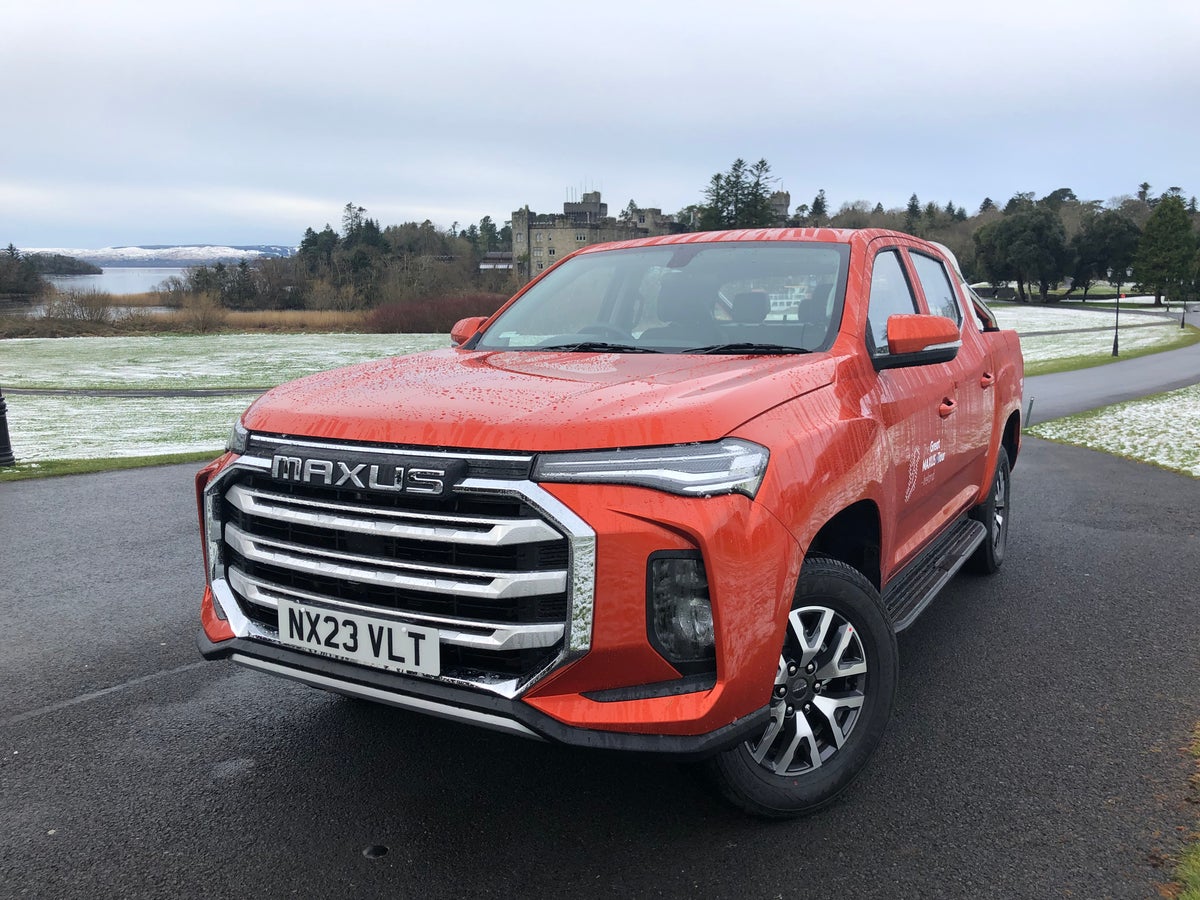
At the outset, I have to apologise for the gross sexism contained in the following quote, for which there is no excuse, but only the context that it was uttered by the great man of letters Dr Johnson in the 17th century, and they were even more different times than the 1970s: “Sir, a woman’s preaching is like a dog’s walking on his hind legs. It’s not done well; but you are surprised to find it done at all.”
It’s very much how I feel about the Maxus T90, which is the first all-electric battery-powered pick-up to appear on the UK market. It’s made in China by the giant Shanghai Automotive group, and imported by Harris Motors, and it’s quite the impressive novelty. You see, because of the way battery electric vehicles (BEVs) tend to be engineered, they’re usually poorly suited to towing, something pick-ups traditionally are also supposed to do. BEVs tend to be heavier than their internal combustion engine (ICE) counterparts, which means their payloads are lower, yet the way weight is distributed around the BEV could make them a bit too light at the front.
The additional weight also adds to the burden on a BEV’s brakes and suspension, and saps power. Because BEVs use so much regenerated energy from braking, a heavy load at the back can put too much power back through the powertrain, which is also not good for it. Added together, it means that the vehicle’s stability can also be compromised. (These sorts of constraints, writ large, are also partly why battery-electric lorries are taking longer to reach viability). The Maxus is two-wheel drive only, and the low-slung electric motor/differential under the rear axle reduces the ground clearance a little.
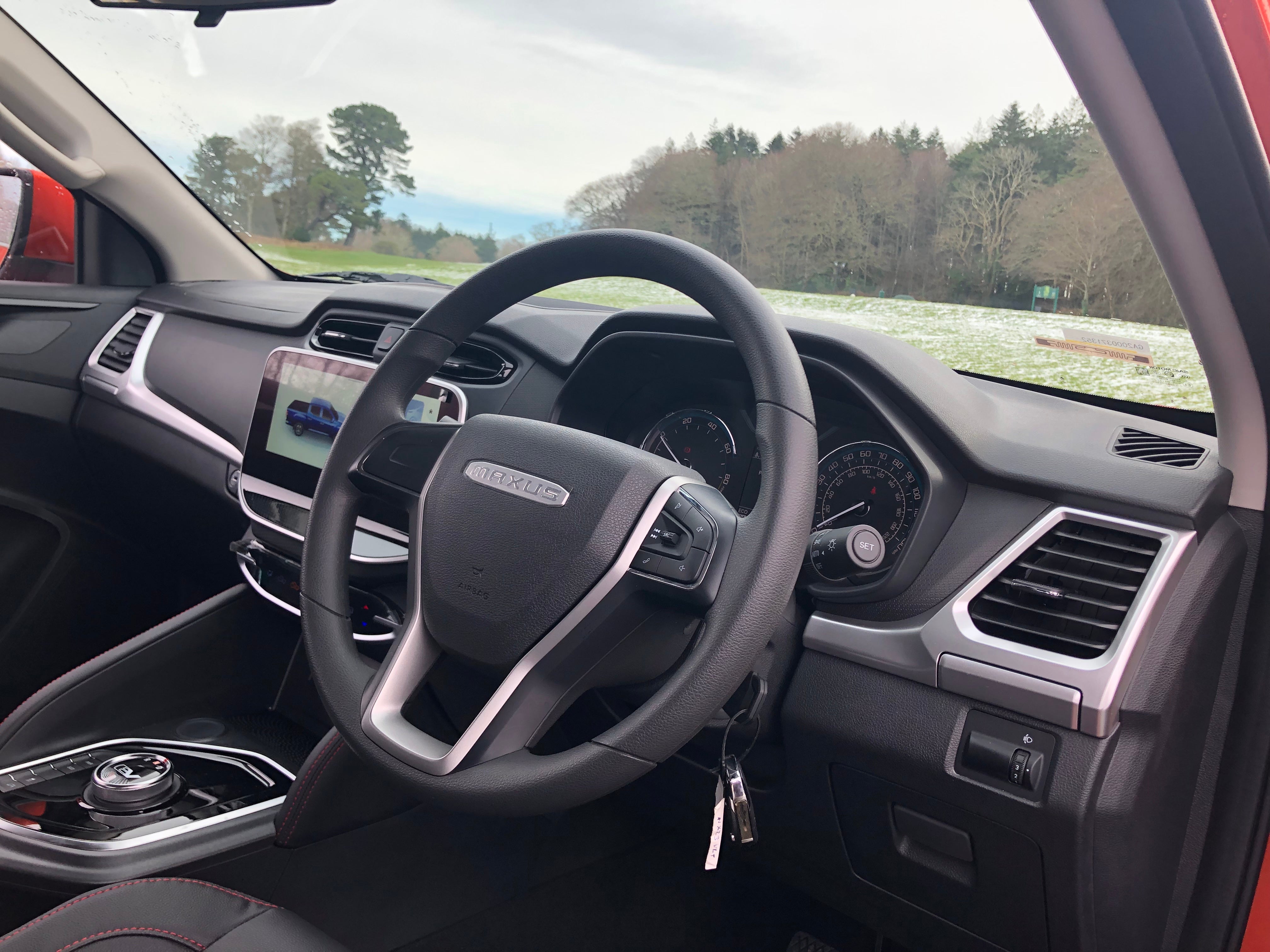
Of course, BEV manufacturers could produce cars capable of towing but it would cost a lot to engineer them, and the volumes wouldn’t make it worthwhile – there just aren’t that many people who need to tow a trailer or a caravan. In the long run, this could be bad news indeed for small businesses and caravanning fans.
But the Maxus can tow, albeit “only” 750kg (a diesel Ford Ranger will tug 3,500kg happily) and it has the one-tonne payload in the back that qualifies it as a commercial vehicle and the usual tax concessions. With its reasonably comfortable four-door “double cab”, like others such as the Ranger, Toyota Hilux and Isuzu D-Max, it is a handily dual-purpose vehicle. The dog can walk!
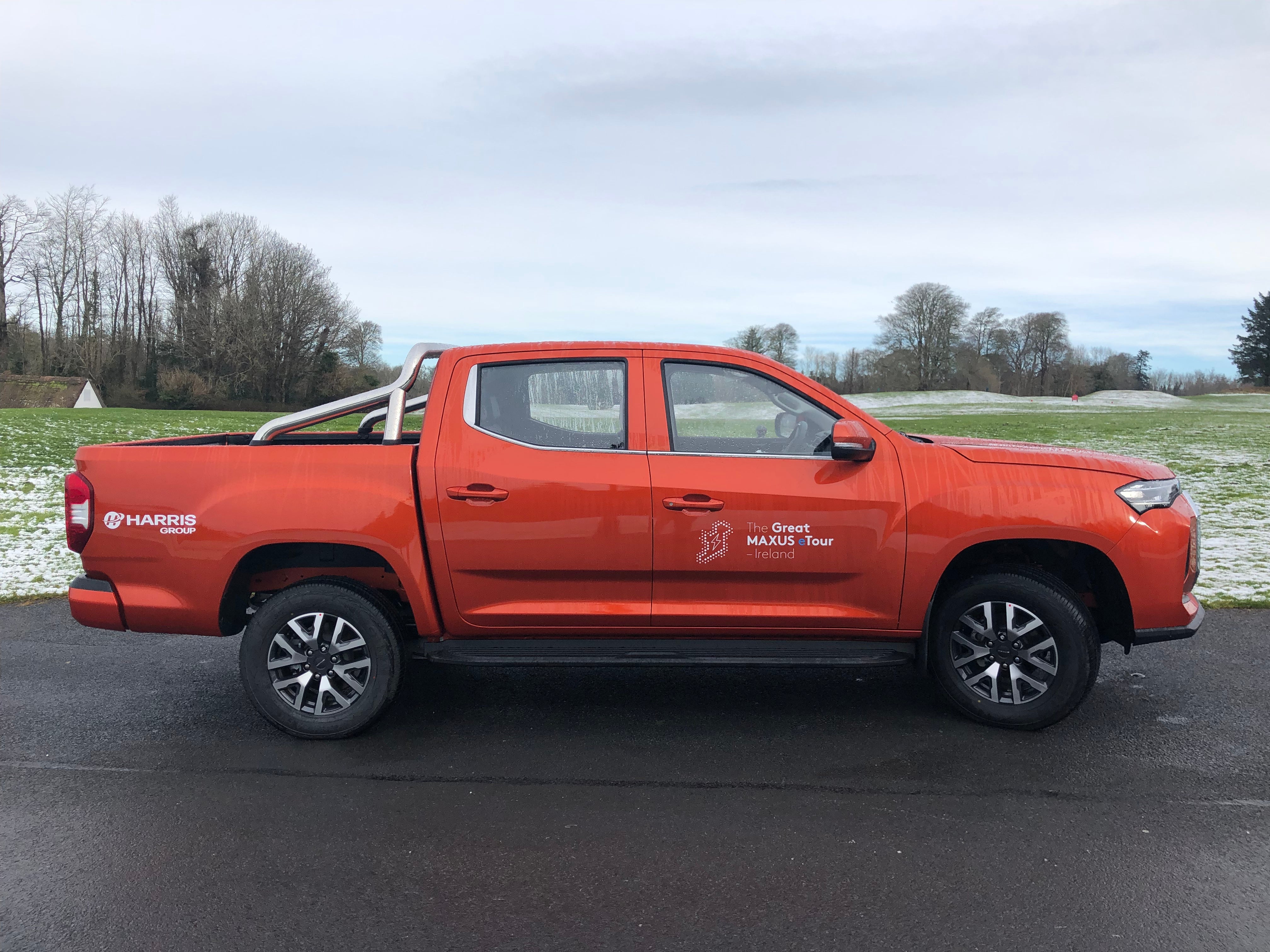
One other drawback is the cost: £50,000 or so, about double the cost of a budget SsangYong Musso. As with passenger cars, there’s still a premium over an ICE counterpart such as the Ford, Toyota, Isuzu or the SsangYong (the Maxus is BEV-only in Europe), and no all-wheel drive option as yet. You’d have to do an awful lot of mileage for the BEV Maxus to make pure commercial sense; but for larger businesses with fleets, it could push their average CO2 emissions down. (By the way, card nerds may care to learn that there’s an MG badged version out in China as well, the MG Extender DC 2.0X, with all-wheel drive and ICE).
So, like Dr Johnson’s dog, the surprise is that an electric pick-up is done at all, even though it is, in some respects, not done as well as its more established and familiar rivals with traditional petrol and diesel propulsion. Ford in America has produced the F150 Lightning, which is far bigger and which you may have seen Joe Biden looking cool in, but it’s really unsuitable for European roads. The much-heralded and equally full-sized Tesla Cybertruck isn’t available yet. An electric Ford Ranger is rumoured. Yet for now the Maxus has the field to itself. For that alone, it’s worthy of respect and deserves success.

Therefore let’s also celebrate the Maxus as a pioneer in the field of sensible, practical BEV production, and some considerable credit for facing up to the challenge (and spotting the opportunity) and making far more progress than the rivals. I drove the Maxus T90 all the way across Ireland (Dublin to Mayo), with only one short top-up for safety’s sake – with the right care, popping it into “eco” mode and taking it steady, it might even have been possible to do the entire journey on one full battery charge in motorway conditions – the 220 claimed range seems fairly credible. (It takes about 35 minutes to get from 20 to 80 per cent charge on a fast charger). The 88.5kWh battery pack and 174hp should be sufficient for most applications.
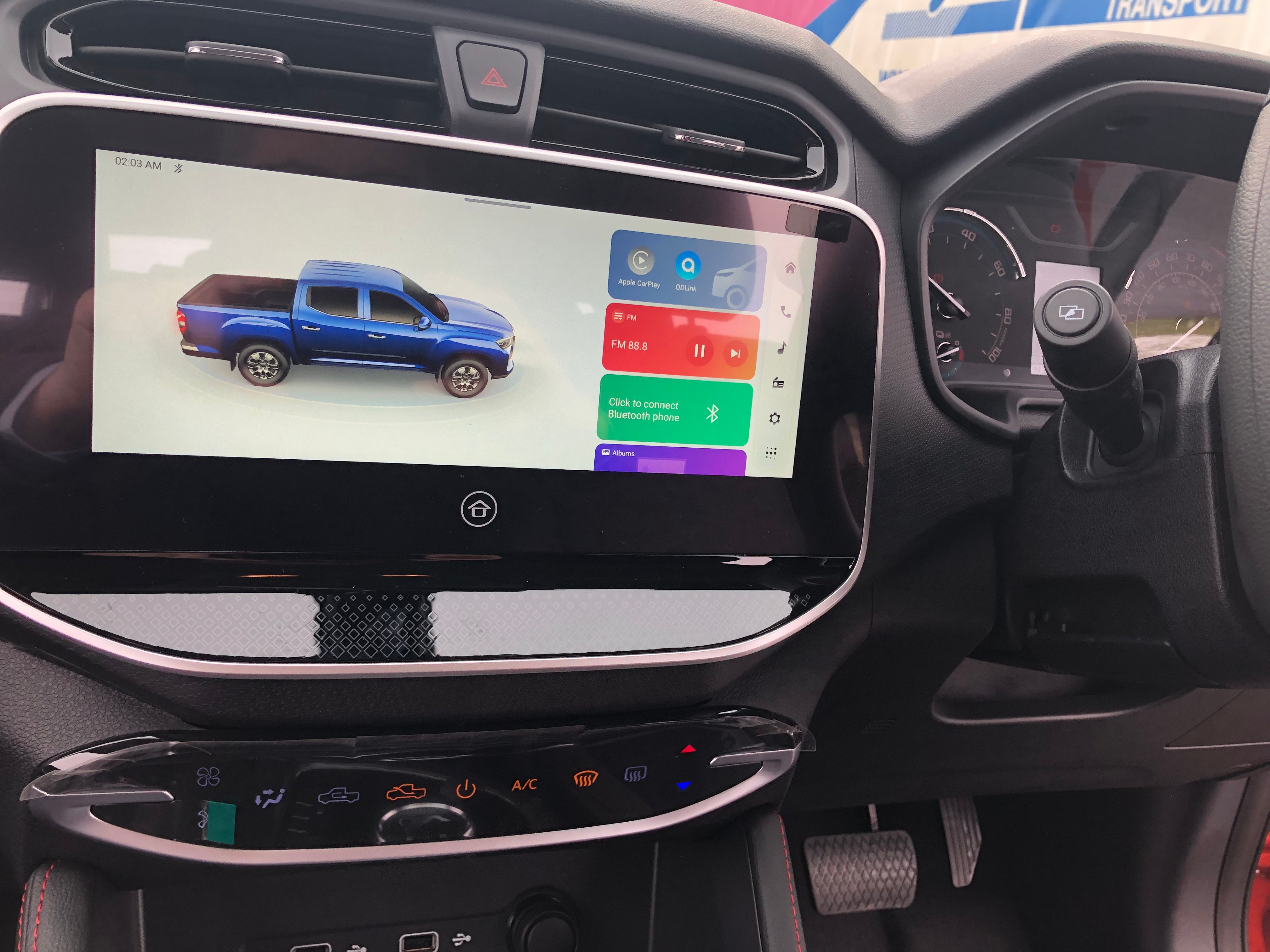
It’s fair to say that the cabin lacks some of the panache you’d see in the Ford Ranger, but it’s got an accessible 10.5in screen that does most things fine, though there’s no built-in satnav and you’d need to ensure your phone is compatible for connectivity. As with all electric vehicles, it has impressive performance, and perhaps even a little too impressive because it can feel slightly skittish unladen with its high centre of gravity and bouncy suspension really meant for lugging hefty loads. Progress is mostly as quiet as any BEV, with only an artificially generated low-speed whine to alert pedestrians of your presence. The lane departure warning beep is unnecessarily sensitive and intrusive and best turned off. Some other warning sounds came on and off a little randomly.
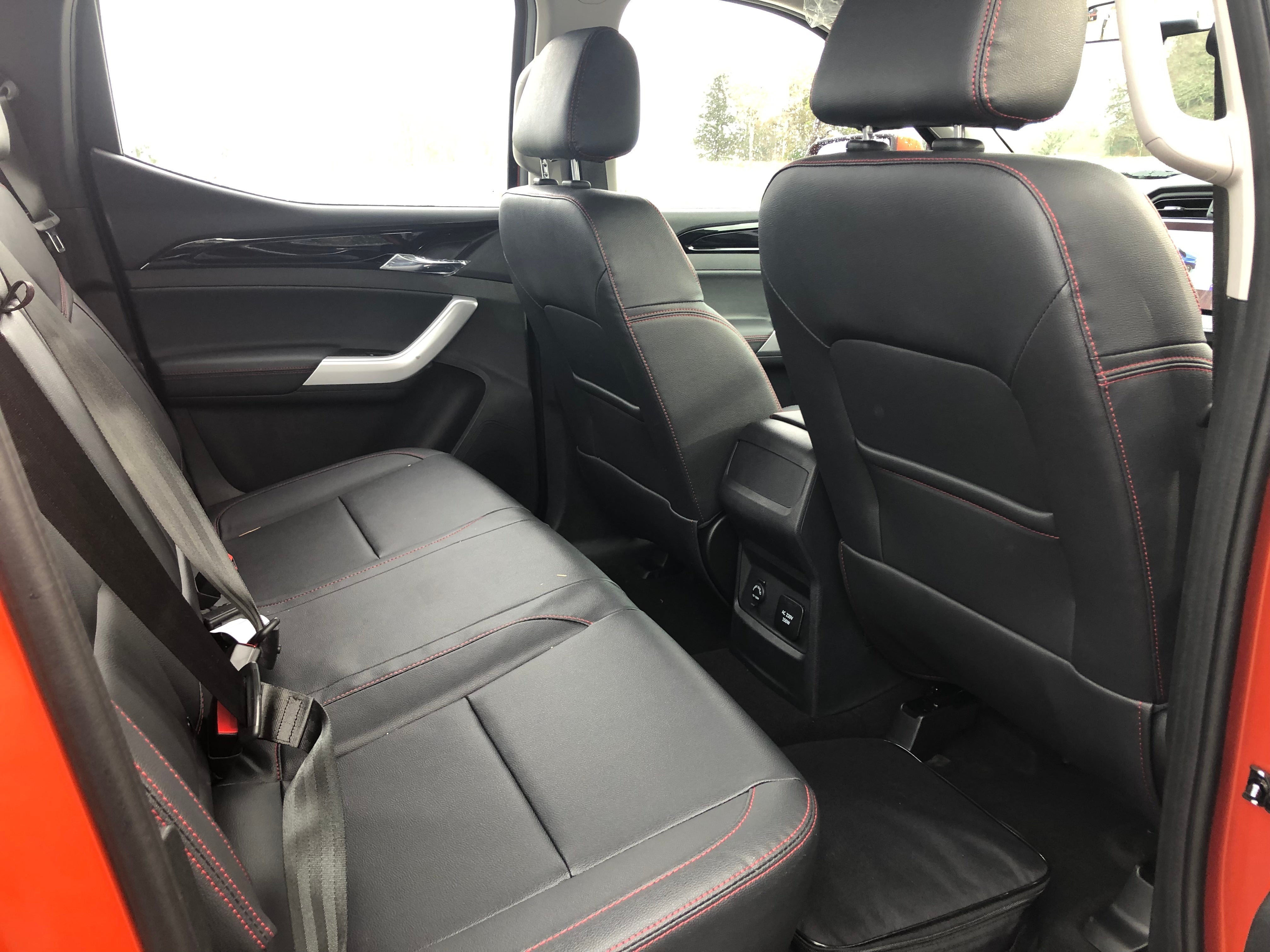
Most of the styling is generic pick-up, and perfectly conventional, apart, that is, from the front treatment, with its huge chrome grille and narrowed headlamps. It’s big, bad and bold looking, but a bit love it or hate it. If I were Maxus/Harris, I’d widen the appeal of the range and also market an even more outrageous-looking version with a body kit, big row of spotlights above the cab, and wild paintings; and also find a way to bring in a two-door single cab with smaller steel wheels, matt black grille and trim, and properly utility spec for environmentally conscious public forestry bodies and the like. Consumers love choice, after all.
As I say, I guess the main market for this Maxus would be those individuals, companies and public agencies who need to be green and seen to be green, and there is certainly a niche for that. Before long, though, that niche will be a legally mandated norm, and you’ll see more of these around.







